Belfast Zoo's elephants pack their trunks
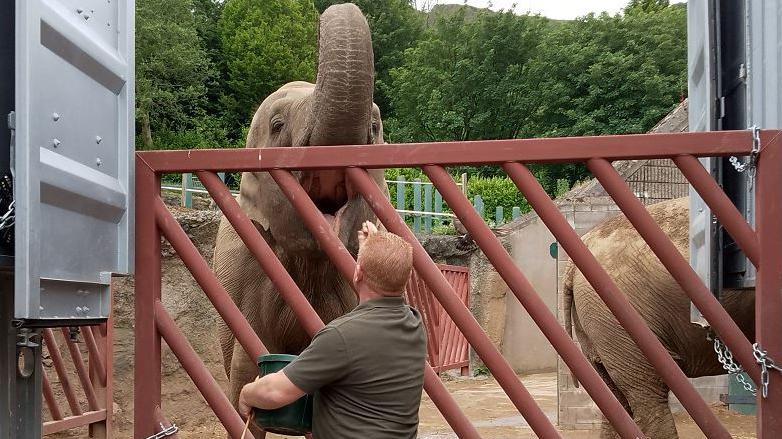
Dhunja and Yhetto will form a herd with two other elderly elephants in the Netherlands
- Published
Belfast Zoo's two remaining Asian elephants are getting ready for retirement in the Netherlands.
Dhunja and Yhetto have been residents in Belfast since 2009.
Last year, Belfast City Council gave permission for them to travel to Royal Burgers' Zoo in Arnhem.
Burgers' Zoo is a retirement home for elderly cow elephants within the Elephant European Endangered Species Programme (EEP).
The elephants are being specially crate trained for their journey on a daily basis.
“There is no official strict date for the move – it’s hopefully happening shortly, but we don’t want to put any pressure on the ladies," Belfast Zoo's Linda Frew said.
"There is always the possibility that on the day of the move they won’t want to go into the crates.“
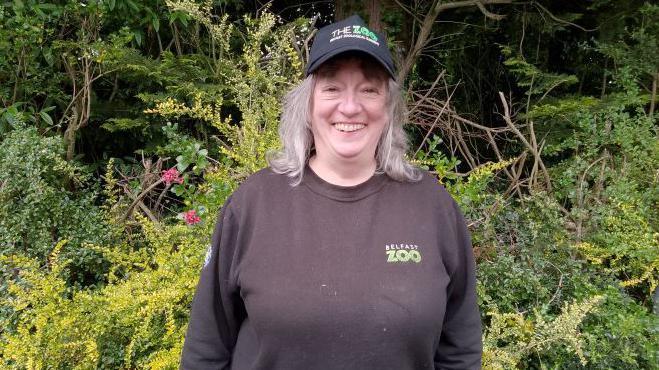
Linda Frew said the zoo doesn't want to put any pressure on the elephants
Geriatric elephants
Gerry Creighton, chief executive of Global Elephant Care, is among the experts getting the two elephants ready for their journey.
He said the elephants had arrived from zoos in Germany and before that one of them worked in a logging camp, the other in a circus.
As they are now classed as geriatric, he said the decision was made by BIAZA - the British and Irish Association of Zoos and Aquariums, EAZA - the European Association of Zoos and Aquariums, Belfast Zoo and Mr Creighton himself, to move them.
“I went to visit the zoo in the Netherlands – it’s a wonderful facility, there are elephants of a similar age," he said.
"There will be a group of four – and that’s the recommended number for elephants to live together.
"These elephants are similar ages and they will be able to compliment one another’s energy levels and how they live.”
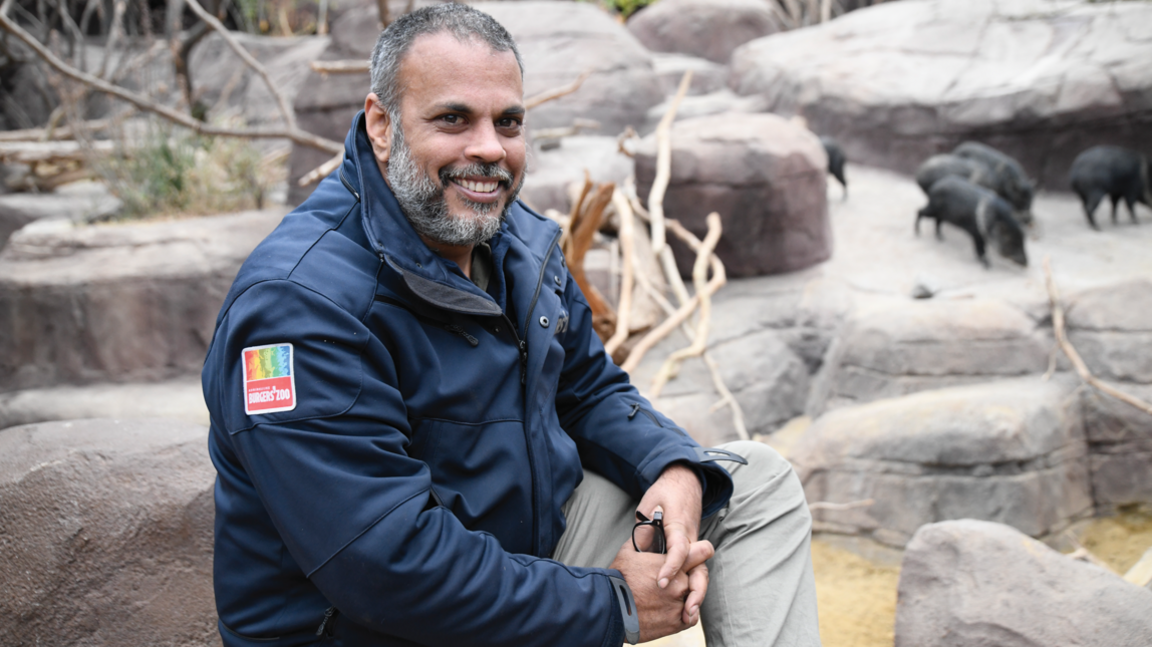
Arun Idoe from Burgers' Zoo said the facility the elephants are moving to is particularly suited to elderly animals
Arun Idoe, park manager at Burgers' Zoo, said that while it is impossible to move elephants "completely stress-free", the crate training undertaken in in Belfast, and that they are transported together so that they can hear and smell each other during the journey helps to reduce stress.
Mr Idoe told the BBC's Evening Extra programme that all the animals in the care of Burgers' Zoo "have a special history that that cannot be incorporated into a bigger herd".
He said that the way that elephants are now cared for "will make sure that the need of a facility like ours is dying out".
Mr Idoe said that while it is "hard to say", the two elephants from Belfast, who are both in their 40s, could live for another 20 years.
"Our exhibit is made in such a way that is is suitable for elderly animals," he added.
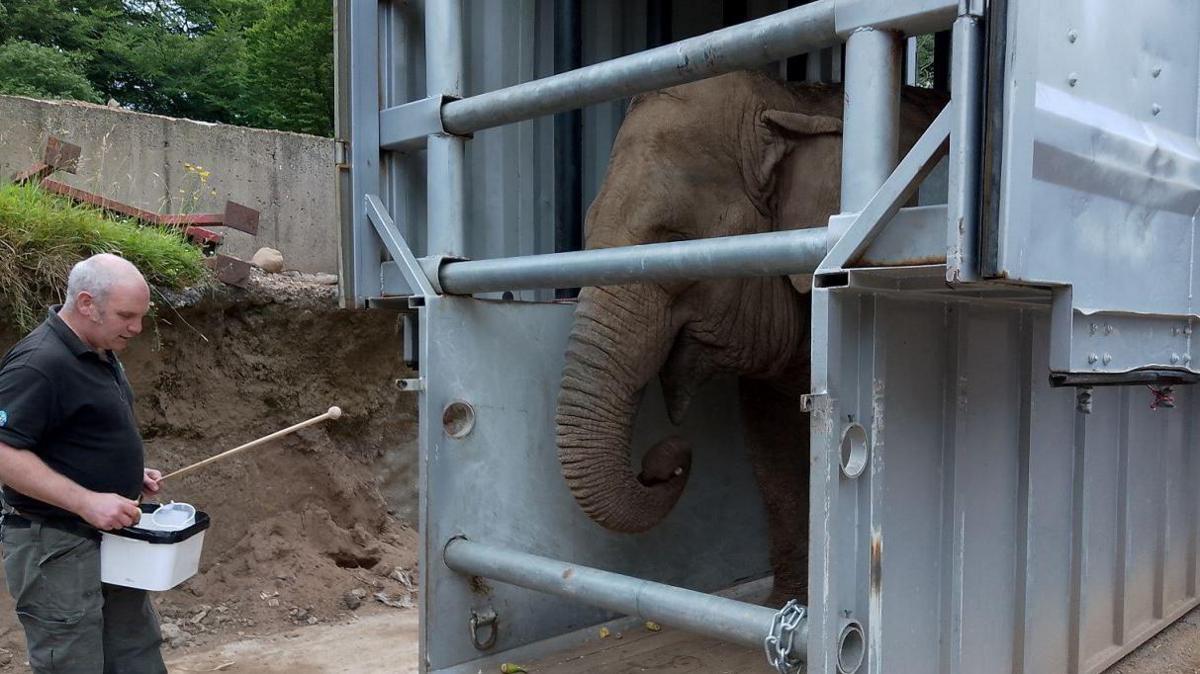
Dhunja and Yhetto are being specially crate trained for their journey
Are there other elephants at Belfast Zoo?
Belfast Zoo has housed elephants for almost 90 years.
The first elephant, Daisy, arrived in 1934 and was walked from the docks to the zoo's site on Antrim Road, a distance of around six miles.
It is understood a 2019 audit of Belfast's elephant enclosure raised issues regarding some elements of the facilities for the animals - these included no outdoor pool, scratching posts and the need for modernisation.
The zoo said that while there was no pool, there are showers which the elephants can press the buttons of to turn on and off themselves.
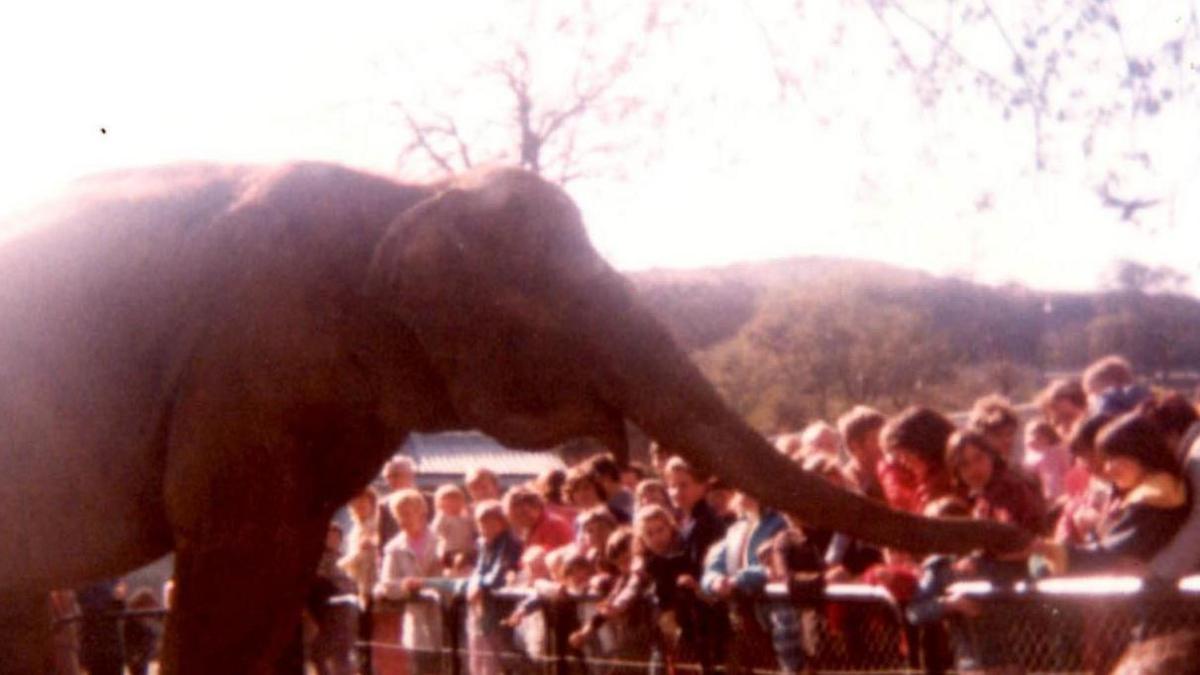
Among Belfast Zoo's previous elephants was Tina, seen here in the 1970s
It is not yet clear what will be done with the space that Dhunja and Yhetto currently occupy – and if they will be replaced by other elephants in the future.
Belfast Lord Mayor Micky Murray said a conversation has yet to take place about the matter.
“Any future plans will be a decision that we need to make as a council, but we haven’t had that conversation yet and as a council we need to sit down and look forward," he said.
Anyone who wants to say their goodbyes to the elephants still has time - the zoo is hosting a series of events next week ahead of their departure.
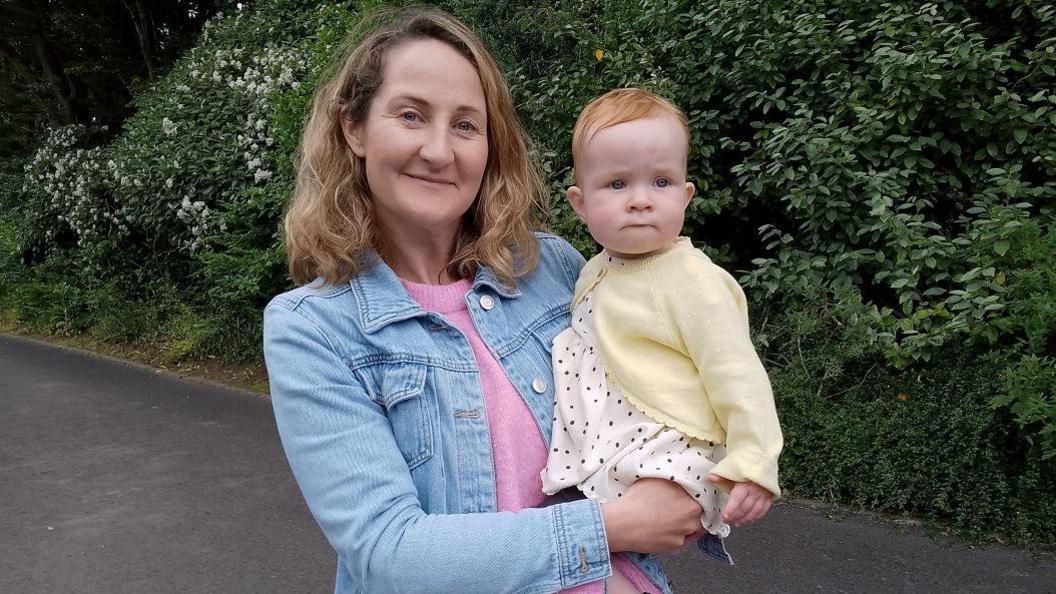
Catherine Gill said it was lovely for her daughter Brannagh to see the elephants before they leave
Catherine Gill got the chance to see the elephants being crate trained along with her daughter Brannagh Young.
She said they were grateful that they got to see Dhunja and Yhetto before they leave.
“We’ve heard the reasons why they are leaving Belfast and we are glad that they will have the company of the two other elephants in the Netherlands,” she said.
“It’s lovely for Brannagh to see the elephants in real life and because it’s the last time it’s extra special.”